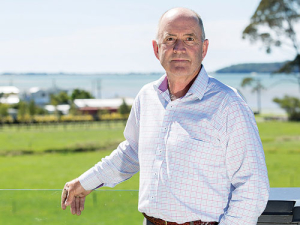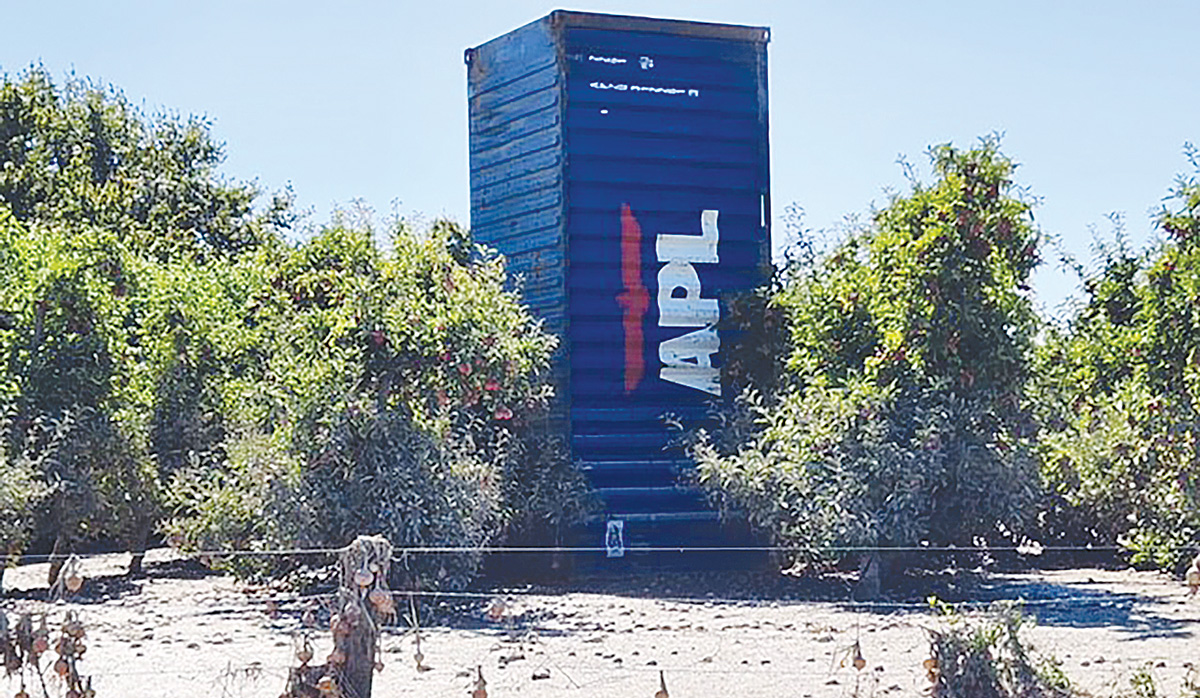EPA remains committed to deliver improved outcomes
OPINION: At the end of my first year as chair of the Environmental Protection Authority (EPA), I have been reflecting on the progress made in the time I have been in the role.
 HortNZ chair Barry O’Neil says his organisation is doing everything it can do to help and support affected growers.
HortNZ chair Barry O’Neil says his organisation is doing everything it can do to help and support affected growers.
Horticulture NZ chair Barry O'Neil says while they welcome the money and support the Government is offering to growers affected by Cyclone Gabrielle and other adverse events, they are delving into the details of the offers.
He says they want to fully understand what's in it for growers and get feedback from them as to whether or not it will meet their specific needs.
O'Neil says they need to get a clear picture of what the banks are offering and how this will benefit growers and also to identify any gaps or points that need clarification.
He told Rural News they may go back to the Government to find a solution, but he is well aware of the Government's position that it will not be offering any more grants.
There are two elements to the Government proposal. The first is aimed at encouraging banks to more actively help farmers and growers to get their businesses back on track, with the Government offering to take 80% of the risk of a loan to a grower away from the banks.
The hope here is that banks will reduce interest rates and offer more flexible terms.
The second part of the package is where the Government will lend up to $4 million to a grower or farmer, if they cannot get a loan from a bank. However, to qualify for this, the individual must prove that they can get their business back on track and that they can then get a bank loan. In essence, both schemes are contingent upon the fact that a grower can get their business back on track eventually.
"Certainly, if you haven't got an orchard or no soil left and it's stripped down to rock, then this is not going to help because there won't be any revenue generated from that area going forward," O'Neil says.
He adds that the Government has already given $250,000 to each eligible orchard and a number of support mechanisms have been provided. He adds that, while the recovery process is continuing, the ongoing wet and unsettled weather has made this very challenging for some - especially, but not exclusively, those in the Hawke's Bay region.
 |
|---|
|
O'Neil says the Government has already been given to $250,000 to each eligible orchard and a number of support mechanisms have been provided. |
"I have visited some orchardists who don't have an orchard anymore, they just have a river," O'Neil told Rural News.
"So, some growers will struggle and understandably it's very unsettling and emotional for everyone involved - seeing your life's work being washed away overnight."
O'Neil says HortNZ is doing everything it can do to help and support affected growers through this.
He says the wellbeing of growers is the number one priority and a lot of effort is going into supporting growers from a number of organisations - such as the Hawke's Bay Fruitgrowers Association, the Horticulture Charitable Trust and the Rural Support Network.
"A lot of activities are underway and more will be needed and will continue to be needed to support the wellbeing of growers and farmers throughout the recovery."
One of New Zealand’s longest-running pasture growth monitoring projects will continue, even as its long-time champion steps away after more than five decades of involvement.
The Insurance & Financial Services Ombudsmen Scheme (IFSO Scheme) is advising consumers to prepare for delays as insurers respond to a high volume of claims following this week's severe weather.
Additional reductions to costs for forest owners in the Emissions Trading Scheme Registry (ETS) have been announced by the Government.
Animal welfare is of paramount importance to New Zealand's dairy industry, with consumers increasingly interested in how food is produced, not just the quality of the final product.
Agriculture and Forestry Minister Todd McClay is encouraging farmers and growers to stay up to date with weather warnings and seek support should they need it.
The closure of SH2 Waioweka Gorge could result in significant delays and additional costs for freight customers around the Upper North Island, says Transporting New Zealand.

OPINION: If the hand-wringing, cravat and bow-tie wearing commentariat of a left-leaning persuasion had any influence on global markets, we'd…
OPINION: With Winston Peters playing politics with the PM's Indian FTA, all eyes will be on Labour who have the…